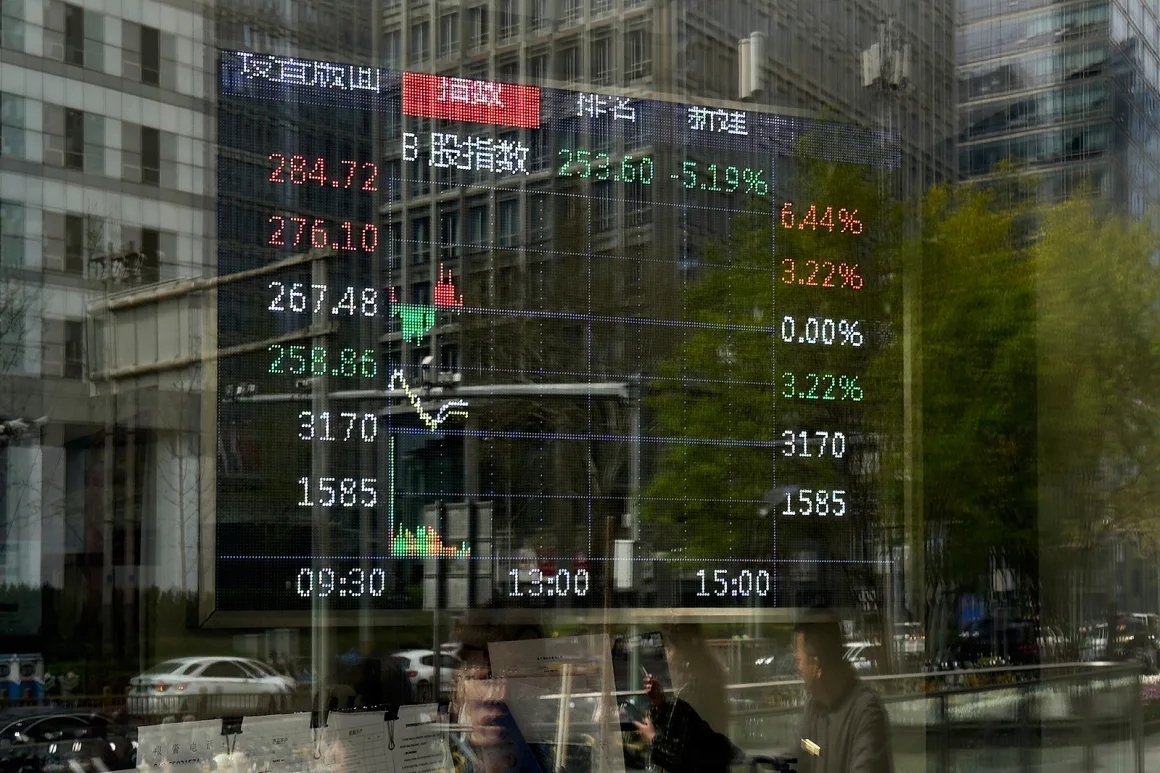Gambiaj.com – (HONG KONG, China) – As global leaders seek concessions from U.S. President Donald Trump amid an escalating trade war, China has taken a defiant stance, positioning itself as a resilient adversary rather than a negotiator. The world’s second-largest economy swiftly retaliated against Trump’s latest tariffs, vowing to transform the crisis into an opportunity.
Within 48 hours of Trump’s announcement imposing additional tariffs on imports worldwide, Beijing hit back with its own punitive measures targeting American goods and companies. When the U.S. president threatened to further escalate the tariffs, China’s Commerce Ministry dismissed the move as a strategic blunder.
“The U.S. threat to escalate tariffs on China is a mistake on top of a mistake,” the ministry stated, denouncing Washington’s approach as blackmail. “China will never accept it. If the U.S. insists on its own way, China will fight to the end.”
A Calculated Response
Beijing’s strong rhetoric signals a strategic calculation by Chinese leader Xi Jinping and his administration, portraying the nation as a steadfast force against what it labels U.S. unilateral bullying. Over the weekend, Chinese state media projected confidence, emphasizing that the country is prepared to endure a prolonged trade war and emerge stronger.
“The U.S. tariffs will have an impact, but ‘the sky won’t fall,’” read a commentary in the Communist Party’s mouthpiece, People’s Daily. The article highlighted China’s economic resilience since the trade war’s inception in 2017, asserting that pressure has only strengthened the country’s resolve.
With what it calls “strong leadership” and “institutional advantages,” Beijing asserts that it will navigate the crisis and secure a more dominant position in the global economy.
Tit-for-Tat Tariffs
Trump recently unveiled an additional 34% tariff on all Chinese imports, bringing the total duty on Chinese goods to over 54%. Beijing swiftly responded with an identical 34% tariff on American imports, alongside additional restrictions, including export controls on rare earth minerals vital to U.S. industries.
On Monday, Trump threatened to escalate the trade war further, warning that a new wave of 50% tariffs would take effect midweek if China did not remove its retaliatory measures by Tuesday. He also announced the cancellation of any further trade negotiations with Beijing.
Despite Washington’s threats, Beijing remains steadfast in its stance. Analysts believe China’s leadership sees Trump’s tariffs as more than just a negotiating tactic. Instead, Beijing views them as an economic misstep that could ultimately damage the U.S. more than China.
“Many in China believe the U.S. is making a mistake that will undermine its own global standing,” noted Ryan Hass, a senior fellow at the Brookings Institution, following discussions with Chinese officials and business leaders. He suggested that China is positioning itself as the champion of globalization, capitalizing on shifting alliances as nations affected by U.S. tariffs seek alternative trade partners.
Beijing’s Global Outreach
As Trump’s tariffs hit allies and rivals alike, China is working to present itself as a stable economic partner. The Chinese Foreign Ministry emphasized over the weekend that China will continue expanding trade, regardless of shifting global dynamics.
Ling Ji, a vice minister at China’s Commerce Ministry, recently met with representatives from 20 American companies, including Tesla and GE HealthCare, to promote China as a secure investment destination. He urged U.S. businesses to push back against the tariffs and advocate for supply chain stability.
Chinese economists argue that the trade war could serve as an inflection point for Beijing to accelerate its economic transition, emphasizing domestic consumption and innovation.
“China cannot tolerate U.S. bullying,” said Liu Zhiqin, a senior researcher at Renmin University of China. “If we accept it, we invite more pressure. We are ready to compete with the U.S. in reshaping the global trade system.”
However, skepticism remains among China’s trade partners, who fear the country’s use of market access as leverage. Some worry that Chinese exports could flood their markets, undercutting local industries. Nevertheless, with Trump’s tariffs impacting both allies and rivals, many nations may find strengthening economic ties with China unavoidable.
Beijing has already engaged in trade discussions with Japan, South Korea, and the European Union, all of whom were hit by new U.S. tariffs ranging from 20% to 25%. Southeast Asian economies, heavily reliant on manufacturing, have also felt the brunt of Washington’s protectionist stance.
Singaporean Prime Minister Lawrence Wong underscored the gravity of the situation, warning that the recent U.S. trade policies signal the end of globalization as the world knows it.
“We are entering a new phase—one that is more arbitrary, protectionist, and dangerous,” Wong stated, echoing concerns from other regional leaders.
A Prolonged Standoff
Despite its confidence, China is bracing for economic turbulence. The prolonged trade war comes as Beijing grapples with a slowing property market, mounting local government debt, and the aftereffects of its stringent pandemic policies. To counteract the anticipated economic blow, the Chinese government recently introduced measures to boost domestic consumption.
Yet, the lack of diplomatic engagement between the two nations raises concerns. Experts warn that without a de-escalation mechanism, both sides could become locked in an endless cycle of retaliatory tariffs.
“No high-level diplomacy means no safety valve,” said Craig Singleton, a senior fellow at the Foundation for Defense of Democracies. “The longer this drags, the harder it will be for either side to back down without losing face.”
With both Washington and Beijing still holding economic weapons at their disposal, the full extent of the trade war remains uncertain. But as tensions mount, so does the risk of deeper economic fragmentation—one that could reshape the global order for years to come.










